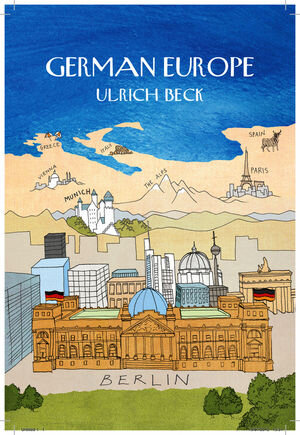The euro crisis is tearing Europe apart. But the heart of thematter is that, as the crisis unfolds, the basic rules of Europeandemocracy are being subverted or turned into their opposite, bypassing parliaments, governments and EU institutions. Multilateralism is turning into unilateralism, equality intohegemony, sovereignty into the dependency and recognition intodisrespect for the dignity of other nations. Even France, whichlong dominated European integration, must submit to Berlin'sstrictures now that it must fear for its international creditrating.
How did this happen? The anticipation of the European catastrophehas already fundamentally changed the European landscape of power. It is giving birth to a political monster: a German Europe.
Germany did not seek this leadership position - rather, it is aperfect illustration of the law of unintended consequences. Theinvention and implementation of the euro was the price demanded byFrance in order to pin Germany down to a European Monetary Union inthe context of German unification. It was a quid pro quo forbinding a united Germany into a more integrated Europe in whichFrance would continue to play the leading role. But the preciseopposite has happened. Economically the euro turned out to be verygood for Germany, and with the euro crisis Chancellor Angela Merkelbecame the informal Queen of Europe.
The new grammar of power reflects the difference between creditorand debtor countries; it is not a military but an economic logic. Its ideological foundation is 'German euro nationalism'- that is, an extended European version of the Deutschmarknationalism that underpinned German identity after the Second WorldWar. In this way the German model of stability is beingsurreptitiously elevated into the guiding idea for Europe.
The Europe we have now will not be able to survive in therisk-laden storms of the globalized world. The EU has to be morethan a grim marriage sustained by the fear of the chaos that wouldbe caused by its breakdown. It has to be built on something morepositive: a vision of rebuilding Europe bottom-up, creating aEurope of the citizen. There is no better way to reinvigorateEurope than through the coming together of ordinary Europeansacting on their own behalf.
How did this happen? The anticipation of the European catastrophehas already fundamentally changed the European landscape of power. It is giving birth to a political monster: a German Europe.
Germany did not seek this leadership position - rather, it is aperfect illustration of the law of unintended consequences. Theinvention and implementation of the euro was the price demanded byFrance in order to pin Germany down to a European Monetary Union inthe context of German unification. It was a quid pro quo forbinding a united Germany into a more integrated Europe in whichFrance would continue to play the leading role. But the preciseopposite has happened. Economically the euro turned out to be verygood for Germany, and with the euro crisis Chancellor Angela Merkelbecame the informal Queen of Europe.
The new grammar of power reflects the difference between creditorand debtor countries; it is not a military but an economic logic. Its ideological foundation is 'German euro nationalism'- that is, an extended European version of the Deutschmarknationalism that underpinned German identity after the Second WorldWar. In this way the German model of stability is beingsurreptitiously elevated into the guiding idea for Europe.
The Europe we have now will not be able to survive in therisk-laden storms of the globalized world. The EU has to be morethan a grim marriage sustained by the fear of the chaos that wouldbe caused by its breakdown. It has to be built on something morepositive: a vision of rebuilding Europe bottom-up, creating aEurope of the citizen. There is no better way to reinvigorateEurope than through the coming together of ordinary Europeansacting on their own behalf.








